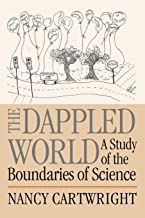From Lars Syll The theory is a vending machine: you feed it input in certain prescribed forms for the desired output; it gurgitates for a while; then it drops out the sought-for representation, plonk, on the tray, fully formed, as Athena from the brain of Zeus. This image of the relation of theory to the models we use to represent the world is hard to fit with what we know of how science works. When applying deductivist thinking to economics, economists usually set up ‘as if” models based on a set of tight axiomatic assumptions from which consistent and precise inferences are made. The beauty of this procedure is of course that if the axiomatic premises are true, the conclusions necessarily follow. The snag is that if the models are to be relevant, we also have to argue that their
Topics:
Lars Pålsson Syll considers the following as important: Uncategorized
This could be interesting, too:
tom writes The Ukraine war and Europe’s deepening march of folly
Stavros Mavroudeas writes CfP of Marxist Macroeconomic Modelling workgroup – 18th WAPE Forum, Istanbul August 6-8, 2025
Lars Pålsson Syll writes The pretence-of-knowledge syndrome
Dean Baker writes Crypto and Donald Trump’s strategic baseball card reserve
from Lars Syll

The theory is a vending machine: you feed it input in certain prescribed forms for the desired output; it gurgitates for a while; then it drops out the sought-for representation, plonk, on the tray, fully formed, as Athena from the brain of Zeus. This image of the relation of theory to the models we use to represent the world is hard to fit with what we know of how science works.
When applying deductivist thinking to economics, economists usually set up ‘as if” models based on a set of tight axiomatic assumptions from which consistent and precise inferences are made. The beauty of this procedure is of course that if the axiomatic premises are true, the conclusions necessarily follow. The snag is that if the models are to be relevant, we also have to argue that their precision and rigour still hold when they are applied to real-world situations. They often don’t. When addressing real economies, the idealizations necessary for the deductivist machinery to work, simply don’t hold.
So how should we evaluate the search for ever greater precision and the concomitant arsenal of mathematical and formalist models? To a large extent, the answer hinges on what we want our models to perform and how we basically understand the world.
For Keynes, the world in which we live is inherently uncertain and quantifiable probabilities are the exception rather than the rule. To every statement about it is attached a “weight of argument” that makes it impossible to reduce our beliefs and expectations to a one-dimensional stochastic probability distribution. If “God does not play dice” as Einstein maintained, Keynes would add “nor do people”. The world as we know it has limited scope for certainty and perfect knowledge. Its intrinsic and almost unlimited complexity and the interrelatedness of its organic parts prevent the possibility of treating it as constituted by “legal atoms” with discretely distinct, separable and stable causal relations. Our knowledge accordingly has to be of a rather fallible kind.
To search for precision and rigour in such a world is self-defeating, at least if precision and rigour are supposed to assure external validity. The only way to defend such an endeavour is to take a blind eye to ontology and restrict oneself to proving things in closed model worlds. Why we should care about these and not ask questions of relevance is hard to see. We have to at least justify our disregard for the gap between the nature of the real world and our theories and models of it.
Rigour, coherence and consistency have to be defined relative to the entities to which they are supposed to apply. Too often they have been restricted to questions internal to the theory or model. But clearly, the nodal point has to concern external questions, such as how our theories and models relate to real-world structures and relations. Applicability rather than internal validity ought to be the arbiter of taste.
In social sciences — including economics — we, as a rule, have neither deductive structures nor terribly believable or warranted assumptions. The vending machine account of science is particularly ill-suited for dealing with these situations.
